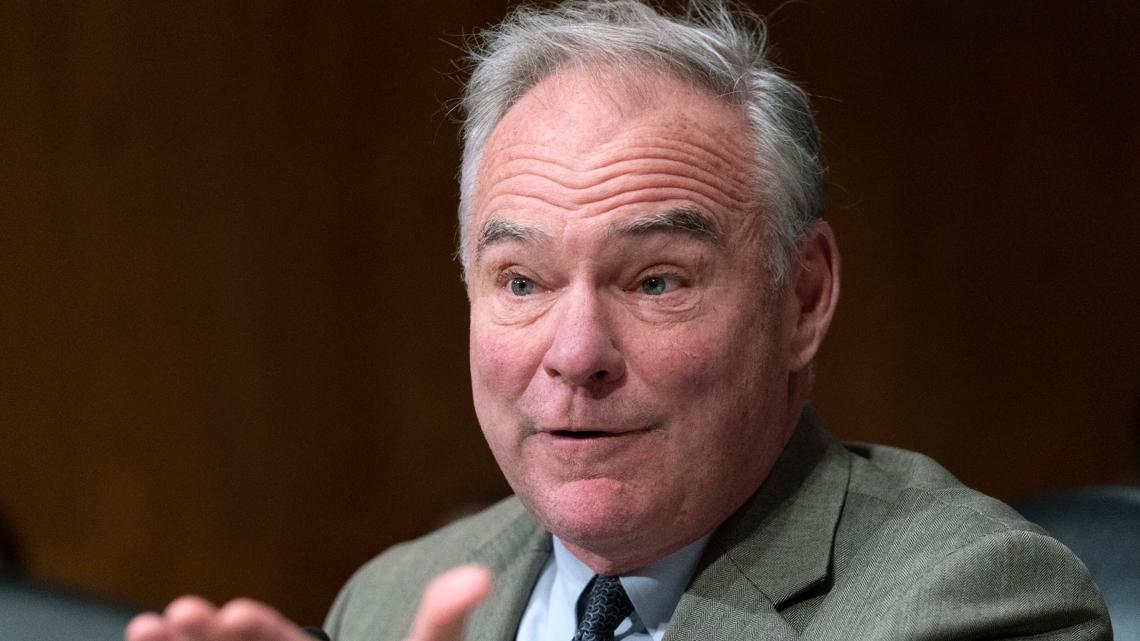Many VERIFY readers have asked if the Biden administration is proposing cuts to Medicare Advantage. Here’s why those claims are false.
Potential cuts to Medicare benefits have been a hot topic for U.S. lawmakers in recent months.
Now, recent advertisements claim President Joe Biden’s administration is proposing cuts to Medicare Advantage, sometimes called “Part C.” One of the ads shared via Twitter alleges that the cuts would take away benefits for individual members.
Many VERIFY readers have also asked if it’s true that the Biden administration is proposing cuts to Medicare Advantage.
THE QUESTION
Is the Biden administration proposing cuts to Medicare Advantage plan benefits?
THE SOURCES
ANSWER
![]()
No, the Biden administration is not proposing cuts to Medicare Advantage plan benefits.
The federal government has proposed changes to how insurance companies that offer Medicare Advantage are paid, but those changes don’t require benefits cuts for enrollees.
WHAT WE FOUND
Medicare is federal health insurance for anyone age 65 and older, and some people under 65 with certain disabilities or conditions. It’s made up of four parts: A, B, C and D.
Traditional Medicare offered by the federal government includes Part A hospital insurance and Part B medical insurance.
Medicare Advantage plans, sometimes called Part C, are offered by private companies approved by Medicare, rather than the federal government. Those plans will provide your Part A and Part B coverage.
Most Medicare Advantage plans also include Part D prescription drug coverage, and may provide extra benefits such as vision, hearing and dental coverage that aren’t included as part of traditional Medicare.
Some of the recent advertisements claim the Biden administration is proposing “massive cuts” to Medicare Advantage that could reduce benefits by hundreds of dollars per retiree. At least one of those ads is funded by the American Action Network, a conservative issue advocacy group.
Two recent announcements from the Biden administration are likely behind the claims about cuts to Medicare Advantage benefits.
One is a rule change that would allow the federal government to recover past overpayments to Medicare Advantage insurers and is set to take effect in April 2023. Second, the federal government recently announced a proposed update to how Medicare Advantage insurers will be paid starting in 2024.
But the Biden administration isn’t proposing cuts to Medicare Advantage benefits for seniors, the U.S. Department of Health and Human Services (HHS) and Medicare experts say.
Here’s a breakdown of those proposed changes.
Rule change
The rule change is set to take effect on April 3, 2023. It will modify the federal government’s process of auditing Medicare Advantage insurers, allowing it to recoup overpayments.
Studies and federal government audits “have shown that private insurance companies have charged billions of dollars in overpayments to Medicare Advantage plans” for diagnoses that were not supported by a patient’s medical record, according to HHS and the Centers for Medicare and Medicaid Services (CMS).
CMS is required by law to “ensure accurate payments and prevent fraud, waste, and abuse.” Audits, which are part of that process, are “unequivocally not cuts,” according to HHS.
Other proposed changes would modify how Medicare Advantage insurers are paid
The Centers for Medicare and Medicaid Services (CMS) shared an advance notice in early February outlining the federal government’s proposals for paying Medicare Advantage plans in 2024.
While some of the changes in the proposal will reduce payments to Medicare Advantage insurers, the Centers for Medicare and Medicaid Services (CMS) estimates that the total effect of proposed policies and other changes will be a 1% increase in payments to insurers per enrollee in 2024.
Because of this increase, HHS asserts that the Biden administration “is not reducing payments to Medicare Advantage.”
So what do these proposed changes do?
Some would impact the risk adjustment model for Medicare Advantage, which essentially determines how much the federal government pays insurers based on patient diagnoses.
The proposed changes would make the risk adjustment model “less generous to the plans,” Robert Berenson, M.D., a Medicare expert with the Urban Institute who has expressed support for the proposed changes, said.
But the risk adjustment changes don’t amount to a cut in benefits for enrollees, according to Berenson.
“There will be less payments going to the health plans, but there’s no requirement that beneficiaries lose anything,” he said.
That will be up to the insurance companies.
Jeannie Fuglesten Biniek, associate director of the Program on Medicare Policy at Kaiser Family Foundation, said it’s more accurate to consider the changes as those that are “improving the accuracy of the payments to Medicare Advantage plans,” rather than cuts.
Some industry stakeholders, such as the Better Medicare Alliance, claim that these changes will lead insurers to cut benefits or increase premiums for Medicare Advantage enrollees. But Fuglesten Biniek said she thinks that outcome is unlikely.
“These plans have generous payments right now from the federal government. They have a good amount of cushion,” she said. “In addition, they compete by offering plans with zero supplemental premiums [and] plans that have robust extra benefits. This is an attractive market for them to participate in.”
Insurers can lower administrative costs, reduce their marketing expenses or cut some of their profits before cutting benefits, which are how they remain competitive in the market, she added.
The VERIFY team works to separate fact from fiction so that you can understand what is true and false. Please consider subscribing to our daily newsletter, text alerts and our YouTube channel. You can also follow us on Snapchat, Twitter, Instagram, Facebook and TikTok. Learn More »
Follow Us
Want something VERIFIED?
Text: 202-410-8808
.png)









 English (US) ·
English (US) ·